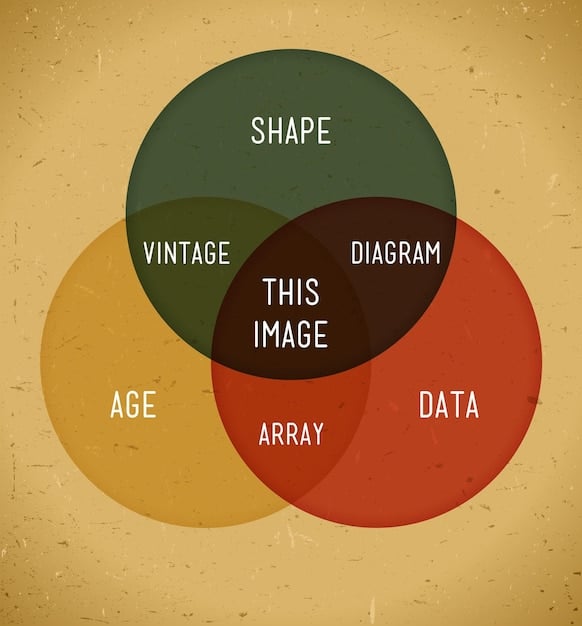E-commerce Influencer Marketing Under Fire: New Regulations in 2025?

E-commerce influencer marketing faces potential overhaul as new regulations on sponsored content loom in 2025, potentially reshaping brand collaborations and transparency standards within the industry.
The world of e-commerce influencer marketing is on the cusp of significant change. With consumer trust and transparency becoming increasingly important, are we about to see a wave of new regulations governing sponsored content in 2025? Let’s dive into the potential shifts and what they might mean for brands and influencers alike.
The Current Landscape of E-commerce Influencer Marketing
E-commerce influencer marketing has exploded in recent years, becoming a cornerstone of many brands’ marketing strategies. But as the industry grows, so does the need for oversight and regulation. Understanding the current state of play is crucial before we can anticipate future changes.
The Power of Influence
Influencers wield significant power in driving consumer behavior. Their authentic connection with their audience can translate into sales and brand loyalty. However, this influence also comes with responsibility.
The Rise of Sponsored Content
Sponsored content is now commonplace, with influencers partnering with brands to promote products and services. While these partnerships can be mutually beneficial, it’s essential that they are conducted ethically and transparently.
- Transparency in sponsored content is key to maintaining consumer trust.
- Influencers must clearly disclose when they are being paid to promote a product.
- Regulations are needed to ensure fair practices and prevent misleading advertising.
Currently, guidelines from organizations like the Federal Trade Commission (FTC) provide some level of oversight, but many feel these guidelines need to be updated and strengthened to address the unique challenges of the e-commerce landscape.

Why New Regulations Are on the Horizon
Several factors are driving the push for new regulations in e-commerce influencer marketing. Consumer protection, ethical concerns, and the evolving nature of social media are all playing a role.
Protecting Consumers from Deceptive Practices
One of the primary reasons for regulation is to protect consumers from deceptive marketing practices. Without clear disclosures, consumers may not realize that an influencer is being paid to promote a product, leading them to make purchases based on biased information.
Addressing Ethical Concerns
Ethical concerns also loom large in the influencer marketing space. Some influencers have been accused of promoting products they don’t actually use or believe in, simply for the sake of financial gain. This lack of authenticity can erode trust and damage the credibility of the entire industry.
The Evolving Social Media Landscape
The ever-changing social media landscape presents ongoing challenges. New platforms and technologies emerge constantly, making it difficult for existing regulations to keep pace.
As these factors converge, the need for clearer, more comprehensive regulations becomes increasingly apparent. The question is not if new regulations will be implemented, but when and how.
What the Regulations Might Entail
Predicting the exact nature of future regulations is challenging, but we can look at existing guidelines and industry trends to make educated guesses. Here are some potential areas of focus:
Stricter Disclosure Requirements
One likely area of focus is stricter disclosure requirements for sponsored content. This could involve mandating specific language or visual cues to indicate that a post is an advertisement.
Increased Enforcement of Existing Guidelines
Another possibility is increased enforcement of existing guidelines. The FTC already has rules in place regarding endorsements and testimonials, but these rules could be more rigorously enforced in the context of influencer marketing.
Platform Accountability
Some argue that social media platforms themselves should be held more accountable for policing sponsored content. This could involve requiring platforms to implement tools that automatically detect and flag undisclosed ads.
- Standardized disclosure language across all platforms.
- Mandatory training for influencers on ethical marketing practices.
- Regular audits of influencer content to ensure compliance.
By addressing these key areas, regulators could create a fairer and more transparent environment for both consumers and responsible influencers.
The Potential Impact on Brands
New regulations could have a significant impact on brands that rely on influencer marketing. While increased oversight could bring challenges, it could also create opportunities for more authentic and effective partnerships.
Increased Transparency and Trust
One potential benefit of regulation is increased transparency and trust. When consumers know that sponsored content is clearly identified, they may be more likely to trust the recommendations of influencers.
A Shift Towards Authentic Partnerships
Regulations could also encourage brands to focus on building more authentic partnerships with influencers who genuinely align with their values and mission. This could lead to more meaningful connections with consumers and stronger brand loyalty.
Navigating New Compliance Requirements
Of course, new regulations would also require brands to navigate new compliance requirements. This could involve implementing new policies and procedures to ensure that all influencer content meets the required standards.

The Potential Impact on Influencers
Influencers would also be directly affected by new regulations. While some might view increased oversight as a burden, it could also enhance their credibility and long-term success.
Increased Credibility and Trust
One potential benefit for influencers is increased credibility and trust. By adhering to clear and transparent guidelines, influencers can demonstrate their commitment to ethical marketing practices.
Building Stronger Relationships with Brands
Regulations could also encourage influencers to be more selective about the brands they partner with, focusing on collaborations that genuinely align with their personal brand and values. This could lead to stronger, more enduring relationships with brands.
Adapting to New Disclosure Protocols
Influencers would need to adapt to new disclosure protocols, ensuring that all sponsored content meets the required standards. This could involve updating their social media practices and working closely with brands to ensure compliance.
Ultimately, new regulations could help to professionalize the influencer marketing industry, creating a more sustainable and trustworthy ecosystem for all stakeholders.
Preparing for the Future of E-commerce Influencer Marketing
Whether new regulations are implemented in 2025 or beyond, it’s essential for brands and influencers to prepare for the future. Here are some steps you can take to stay ahead of the curve:
Stay Informed About Industry Trends
Keep up to date with the latest news and developments in the influencer marketing industry. Follow industry publications, attend conferences, and engage with experts to stay informed about potential regulatory changes.
Adopt Ethical Marketing Practices
Regardless of whether new regulations are implemented, adopting ethical marketing practices is always a good idea. Be transparent with your audience, disclose sponsored content clearly, and only promote products you genuinely believe in.
Build Authentic Relationships
Focus on building authentic relationships with your audience and with brands. Genuine connections are more valuable than transactional partnerships in the long run.
- Invest in compliance training for your team or yourself.
- Develop clear policies and procedures for influencer marketing campaigns.
- Monitor influencer content regularly to ensure compliance.
- Seek legal advice to ensure you are meeting the highest possible standards in advertising.
By taking these steps, you can position yourself for success in the evolving world of e-commerce influencer marketing.
In conclusion, the potential for new regulations in e-commerce influencer marketing is real, and the time to prepare is now. By embracing transparency, authenticity, and ethical marketing practices, brands and influencers can navigate the changing landscape and build stronger, more sustainable partnerships.
| Key Point | Brief Description |
|---|---|
| 📣 Regulations Evolving | New rules are expected to address transparency and ethical concerns. |
| 🛡️ Consumer Protection | Safeguarding consumers from deceptive marketing practices is paramount. |
| 🤝 Authentic Partnerships | Regulations may encourage brands and influencers to form more genuine alliances. |
| 📈 Industry Professionalism | The goal is to foster a more reliable, sustainable influencer marketing ecosystem. |
FAQ
▼
Currently, the FTC provides guidelines requiring influencers to disclose sponsored content clearly. However, these guidelines aren’t always consistently followed or enforced.
▼
Stricter regulations are being considered to protect consumers from misleading advertising and ensure ethical practices within the influencer marketing industry.
▼
New regulations could require brands to implement stricter compliance measures and focus on building more authentic partnerships with influencers.
▼
Influencers should stay informed about industry trends, adopt ethical marketing practices, and prioritize building genuine relationships with their audience.
▼
New regulations could lead to increased transparency, trust, and credibility within the influencer marketing ecosystem, benefiting both consumers and responsible influencers.
Conclusion
As we look ahead to 2025, the future of e-commerce influencer marketing hinges on the implementation of clear and comprehensive regulations. By embracing transparency, promoting authenticity, and prioritizing ethical practices, the industry can evolve into a more trustworthy and sustainable ecosystem for brands, influencers, and consumers alike.





